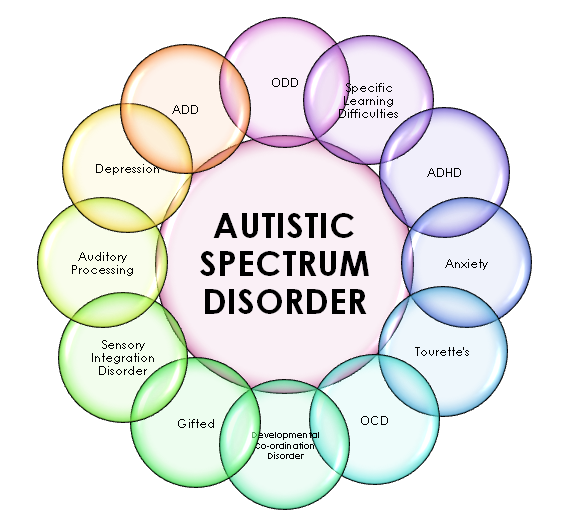Autistic Spectrum Disorder (ASD) is a complex neurodevelopmental condition characterized by persistent challenges in social interaction, communication, and restricted or repetitive patterns of behavior, interests, or activities. Understanding its overview, symptoms, causes, prevention, and treatment is crucial for effective management and support.
Overview
ASD encompasses a spectrum of disorders, ranging from mild to severe, affecting individuals differently. Common features include difficulties in social interaction, communication deficits, and repetitive behaviors. Diagnosis typically occurs in early childhood, although symptoms may vary widely among individuals.
Symptoms
Symptoms of ASD may include:
- Impaired social interaction: Difficulty with understanding social cues, maintaining eye contact, and forming relationships.
- Communication challenges: Delayed language development, difficulty initiating or sustaining conversations, and reliance on nonverbal communication.
- Restricted interests and repetitive behaviors: Intense focus on specific topics, adherence to routines, and engaging in repetitive movements or activities.
- Sensory sensitivities: Heightened or diminished sensitivity to sensory stimuli, such as light, sound, touch, or taste.
Causes
The exact causes of ASD are not fully understood, but research suggests a combination of genetic and environmental factors. Risk factors may include:
- Genetic predisposition: Family history of ASD or related conditions.
- Environmental factors: Prenatal exposure to certain toxins or medications, maternal illness during pregnancy, or complications during childbirth.
- Neurological differences: Altered brain development affecting social and communication pathways.
Prevention
Preventing ASD is challenging due to its complex etiology, but certain factors may reduce the risk or severity of symptoms:
- Prenatal care: Maintaining a healthy lifestyle during pregnancy, including proper nutrition and avoiding harmful substances.
- Early intervention: Identifying developmental delays and providing appropriate support and therapies as soon as possible.
- Genetic counseling: Understanding family history and potential genetic risk factors may inform family planning decisions.
Treatment
Management of ASD involves a multidisciplinary approach tailored to the individual’s needs. Treatment strategies may include:
- Behavioral interventions: Applied Behavior Analysis (ABA) and other evidence-based therapies to address social skills, communication, and behavior management.
- Speech and language therapy: Supporting language development and improving communication skills.
- Occupational therapy: Addressing sensory sensitivities and enhancing daily living skills.
- Medication: Managing co-occurring conditions such as anxiety, depression, or attention deficit hyperactivity disorder (ADHD).
- Educational support: Individualized education plans (IEPs) and specialized educational settings to accommodate learning differences.
In conclusion, understanding the overview, symptoms, causes, prevention, and treatment of ASD is crucial for promoting early detection, intervention, and support for individuals with this complex condition. A comprehensive approach involving healthcare professionals, educators, and caregivers is essential to improve outcomes and enhance the quality of life for individuals living with ASD.
































